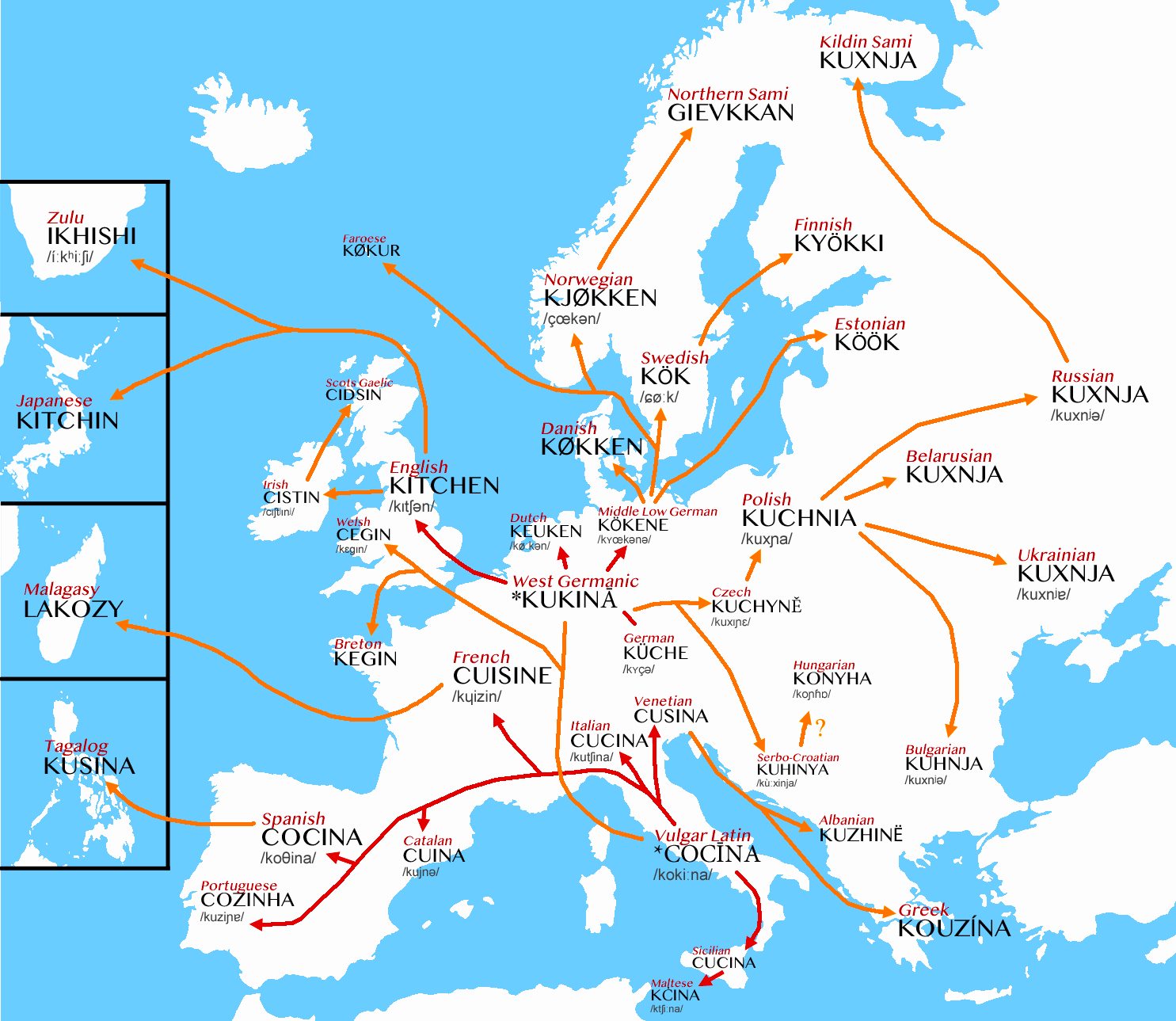Map found on Reddit
Ever wondered why “kitchen” sounds so similar across different European languages? The answer lies in ancient Rome, where the Latin word “coquina” first described the heart of every Roman home: the cooking space.
This fascinating linguistic map reveals how one word evolved and traveled across continents, adapting to local tongues while maintaining its essential meaning.
From Roman Hearths to Global Kitchens
The Latin “coquina” didn’t just disappear with the fall of Rome. Instead, it embarked on an epic journey across Europe, morphing and adapting as it crossed borders and centuries.
In Spain, it became “cocina,” while the French refined it to “cuisine.” The Germans adopted it as “küche,” and the Italians kept it close to its roots with “cucina.”
What makes this evolution particularly interesting is how each culture added its own linguistic flavor while preserving the core concept. The word didn’t just travel geographically; it traveled through time, carrying with it the fundamental human need to cook and gather around food.
Beyond Europe’s Borders
The influence of “coquina” didn’t stop at European coastlines. Colonial expansion and trade routes carried these linguistic seeds to distant lands.
Today, you can trace this ancient Roman word in languages as far apart as the Tagalog “kusina” in the Philippines and various African languages that adopted the term through historical contact.
This global spread demonstrates how food vocabulary often travels alongside cultural exchange, trade, and migration. The kitchen, being central to human life, naturally became one of the first concepts to cross linguistic boundaries.
Modern Echoes of Ancient Rome
Today, when you hear a chef talk about “cuisine” or visit someone’s “kitchen,” you’re experiencing the lasting legacy of Roman linguistic influence.
The word has evolved beyond just describing a physical space; “cuisine” now encompasses entire culinary traditions, cooking styles, and cultural food identities.
Even more fascinating is how some languages developed multiple related terms. English borrowed both “kitchen” (through Germanic roots) and “cuisine” (through French), giving us nuanced ways to discuss cooking spaces versus cooking styles.
The Power of Culinary Language
This linguistic journey reminds us that food vocabulary is rarely just about food. It carries history, culture, and human connection across generations. Every time we use these words, we’re participating in a conversation that began in Roman kitchens over two thousand years ago.
The next time you step into your kitchen or admire a restaurant’s cuisine, remember that you’re using words that have simmered and seasoned themselves through centuries of human culture, emerging today as rich and varied as the dishes they describe.
Help us out by sharing this map:
